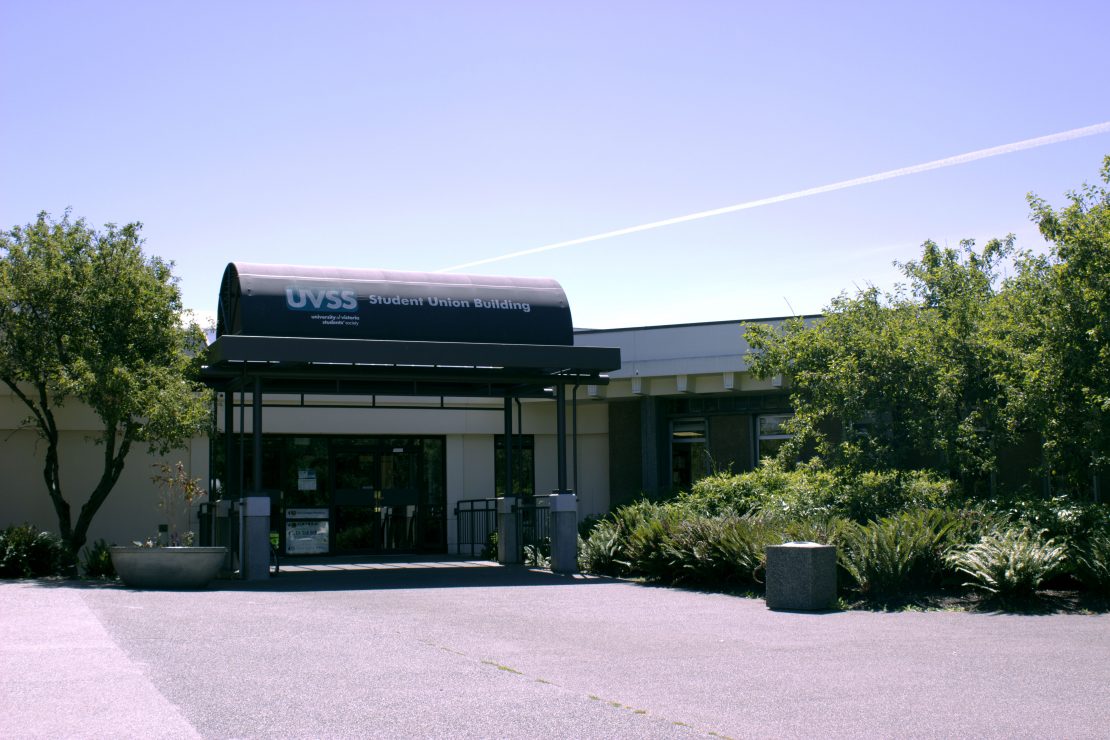
The SUB, where Martine Conway has worked as the university ombudsperson for nearly 20 years. File photo
Not many people know about UVic’s ombudsperson office. Come to think of it, not many people even know what an ombudsperson is for that matter. Generally speaking, the position is an independent, impartial resource for the public to advise on disputes involving fairness, rights, administration, government, and equality.
UVic’s ombudsperson is a confidential and trustworthy resource for both undergraduate and graduate students on campus whose mandate is to help resolve student problems or disputes fairly. Although the ombudsperson cannot resolve the conflict by themselves, they can give advice about the student’s rights, options, and responsibilities. This includes giving constructive guidance when raising a complaint, giving advice on appeal procedures, making recommendations on policies, and facilitating communication between conflicting parties.
UVic’s Office of the Ombudsperson was formed in 1978 and is now funded mostly by undergraduate and graduate students (79.5 per cent) and the university (20.5 per cent). The most recent ombudsperson, Martine Conway, has held the position for 19 years.
Since Conway retired this past April, the Martlet caught up with her to glean some of her vast amount of insight regarding what it takes to settle conflicts and build a community at UVic.
Martlet: How did you become the ombudsperson at UVic?
Martine Conway: I applied and was interviewed by the hiring committee which was made up of student, staff, and faculty members from the advisory committee. I was at the time new to Victoria and looking for work where I could use my knowledge of the university environment and my experience as an educator and mediator. I came from Ontario, and, coincidentally, my predecessor in the role was leaving the position to move to Ontario.
I had come for an informational interview to ask her about opportunities to use my skills in Victoria or at UVic, and she told me that her position was about to become vacant. I became an ombuds initially like many of my colleagues do. We didn’t grow up thinking “I will be an ombudsperson one day.” It is an opportunity that presents itself at a time that is right in someone’s career. I feel fortunate to have had this opportunity.
Can you explain the process after a student comes to the office?
The ombuds office complements but doesn’t replace university mechanisms. The idea is to provide tools to help students navigate university procedures and resolve issues at the lowest appropriate level, and to provide a recourse if things are not resolved by using university channels.
At the lowest levels, in addition to a referral, a student may need information about their rights and responsibilities, advice about how to document their situation, coaching about how to approach their instructor or supervisor, feedback about how to appeal. If a student has taken those steps and there is a problem with communication or with the process, the ombudsperson can intervene to facilitate communication, problem-solve, or investigate. Intervention’s only done with the student’s written permission since a consultation with the ombudsperson is confidential.
What’s the most rewarding conflict that you’ve resolved?
It is difficult to answer questions about cases because the interesting parts are in the details (which can’t be shared). But one situation that was both unusual and rewarding involved students in a professional program and allegations they made about each other in the context of an unsupervised course component.
This was early in my time at UVic, prior to the development of the policy on non-academic misconduct, so the program didn’t have a blueprint to follow. Unfortunately, this means that some versions of the story had been believed over other versions. But not enough attention had been given to what had actually happened. And unfortunately one of the students was going to be withdrawn from the program. The strangest thing was that nobody was happy because students on both sides didn’t feel heard, even the ones whose story was believed. It was very rewarding because it was resolved (the individual student completed the program) and the academic unit also went through a process with its students to learn about the experience and improve process.
What do you wish people knew about the ombudsperson?
The biggest challenge is to let people know that the office exists. Students who arrive on campus are bombarded with information, so they do not immediately think, “Oh, I wonder if there is an ombuds office?” They look for help when something happens, and they need to know that the office is not just an office of last resort.
You can really go to the ombuds office if you are not sure that you have a fairness issue, or if you don’t know how to resolve a problem, or if you are not sure that you want to do anything about your situation. The ombuds will listen confidentially and help you identify options from which you can choose.
Can you sum up your experience of the 19 years you were ombudsperson?
When I started in the office, it was a part-time operation funded by undergraduate students. I had the privilege of seeing the office grow to a full time operation co-funded by undergraduate and graduate students and the university.
My best learning experiences have come from students who are often the ones leading change. I am always awed by the stories of struggle and resilience from students during the UVic Mental Health Awareness event. One of the biggest changes over the last 20 years has been in the approach of all universities and UVic in particular about accessibility.






